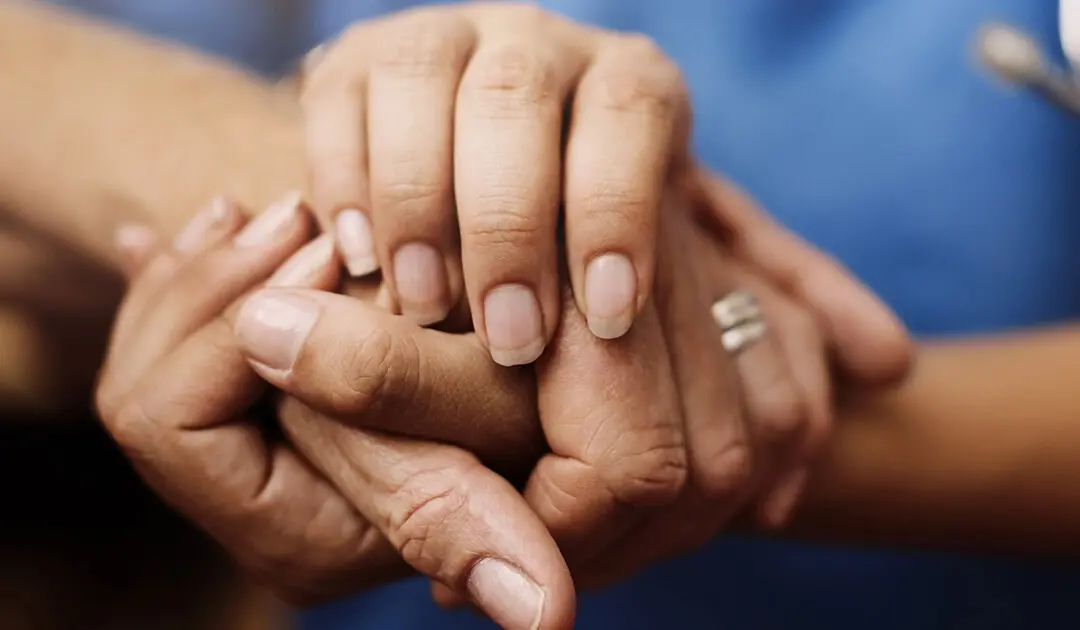Are You the Parent of an Adult Struggling with Addiction? Try These Tips

If you’re the parent of an adult who is struggling with addiction, you know this crisis can test your capacity to cope with a range of painful emotions. Any parent who has been in this space knows it’s no exaggeration to describe the experience as a chronic state of emergency. It’s scary and heartbreaking to live with the anxiety that your child could lose their life due to their substance abuse.
In these circumstances, it’s natural to feel helpless. Often, a parent’s first question is: “How do I fix this?”
The uncomfortable truth is that you can’t “fix” this problem, and it’s not your job to fix it. This realization can feel both terrifying and freeing—and it can be excruciating to put into practice.
Even if your child is no longer a minor in your care, there are still steps you can take to support their recovery:
1. Get support for yourself first.
Just the other day, I spoke with a woman whose son is coping with opiate addiction. He’d recently relapsed again after having been sober for several months. This time, though, she said her experience as a parent was “very different” than when her son had previous periods of active addiction — because she’d built a network of support for herself.
The more support you have — be that a 12-step recovery group for family members, close connections with other parents on the same journey, or weekly check-ins with a therapist — the better prepared you’ll be to extend a helping hand from a place of emotional strength.
It’s the same logical basis for the instruction that commercial airline passengers receive every time they fly: “Put on your own oxygen mask before adjusting your child’s.”
That’s a tough direction to heed, because the parental instinct is to ensure our child’s safety before our own. But in the crisis of substance abuse, which is more like a marathon than a quick sprint to the finish, getting “oxygen support” for yourself first is even more important.
The healthier you are emotionally, the better able you will be to help your child.
2. If you notice signs of addiction or a relapse, speak up as soon as possible at a time that is appropriate.
The “right time” is not when your child is under the influence of their drug of choice. Always try to have the conversation when they are sober. Consider broaching your concerns when it is undeniable that your child is experiencing the negative consequences of their substance use. For example:
- During a hangover that keeps them from joining the family festivities on Christmas morning.
- After a trip to the ER because of an overdose or other addiction-related complications.
- When drugs or alcohol are causing problems at home or at work, or leading to serious legal or financial troubles.
3. Avoid enabling your child’s addiction.
This is a tough thing to do, because it can mean rewiring some of your deepest parental instincts. Simply put, enabling is doing anything that keeps the addiction alive and discourages recovery. Here are some of the more common enablement traps that parents fall into:
- Paying unpaid bills or rent or letting an adult child with addiction live at home.
- Making excuses for their behavior.
- Bailing them out of jail or other substance abuse-related legal troubles.
- Not following through with voiced ultimatums in response to behavior that requires accountability.
- Taking on responsibilities that belong to your child.
While you may be taking these actions with the best of intentions, at the end of the day, they only encourage continued substance abuse—and impede the likelihood of recovery.
4. Encourage your child to get treatment.
You can and should encourage your child to seek treatment for their addiction. It is entirely appropriate to research the best treatment options in your area, so that you can then be ready with a list of trusted providers to call if your child agrees to pursue treatment. Because it is not uncommon for a person with addiction to agree to treatment and then change their mind, acting quickly to get a loved one into rehab is imperative.
5. Do your best to show your adult child you love and support them—don’t judge and stigmatize them.
Insisting that your child receives treatment requires some tough love. But that doesn’t mean you shouldn’t also let your child know that you love them unconditionally, or that you can’t support them in healthy ways.
Avoid choosing words and actions that can come across as efforts to preach to or punish your child, since these parenting tactics may only succeed in pushing your child away from the help they need. Wherever and whenever possible, seek out positive connections with your child and opportunities to let them know how much you love them.
Try not to let your own feelings get in the way of helping your child find freedom from addiction. While it can be difficult at first, helping them receive professional treatment and expressing your genuine support are key to a safe and successful recovery.
ABOUT THE AUTHOR
 Anna Ciulla is the Chief Clinical Officer at Beach House Center for Recovery. She has an extensive background in psychotherapy and clinical management, including more than 20 years of experience helping individuals and families affected by addiction and co-occurring disorders find recovery. Anna is often invited to speak and write for various audiences on issues related to addiction.
Anna Ciulla is the Chief Clinical Officer at Beach House Center for Recovery. She has an extensive background in psychotherapy and clinical management, including more than 20 years of experience helping individuals and families affected by addiction and co-occurring disorders find recovery. Anna is often invited to speak and write for various audiences on issues related to addiction.
Schedule a Consultation
Learn how CPI’s training programs can benefit your organization.
Let's Connect